//Christy Powell and Mallory Garner-Wells (front left) were among those protesting a new Texas law restricting abortion at a Reproductive Rights Rally on Sept. 4 on the steps of the Colorado State Capitol. Photos by Esteban Fernandez | [email protected]
Facing a lack of scheduled protests in response to Texas’ new abortion law, three friends pulled together to organize an impromptu avenue for outcry on Sept. 4 at the Colorado State Capitol.
“We couldn’t find a protest or event already scheduled, so we thought why not us,” said Rochelle Brigitte, a co-host of the event with Abbi Sharon and Mary Imgrund. “While our abortion rights are still intact here in Colorado, the fact is, if this can happen in one state, it can happen in every state.”
Texas Senate Bill 8 went into effect on Sept. 1, banning abortions after a fetal heartbeat can be detected by ultrasound, which lawmakers claim is as early as six weeks of pregnancy. In reality, this “heartbeat” is actually the electrical activity from the area that will become the future heart of the baby.
The new law does not make exceptions for rape or incest. The Supreme Court’s refusal to hear the appeals on SB-8 makes the Roe ruling void in the state due to the unprecedented structuring of the bill. Fellow citizens can report on and sue those aiding in the abortive process; anyone from the doctor, to rideshare drivers to the woman who sought out the medical procedure. If the plaintiff wins their case, they can collect at least $10,000 for each abortion prohibited under the new law. On Sept. 1, the Supreme Court failed to block the law, which is the most restrictive abortion law since Roe v. Wade safeguarded abortion in 1973.
One in four women will have an abortion by the age of 45 in the United States, Planned Parenthood reported in 2018. Following the new restrictions placed on uterus-bearing Texas residents, Colorado healthcare providers expect a surge of Texans traveling to the state for reproductive care. Even with the support of other states, this bill is a reminder that not everyone has the privilege to access the medical procedure.
While planning the event, Brigitte said she thought critically about inclusivity within the protest space. She considered how the women’s rights movement has and continues to silence the voices of women of color, the LGBTQ+ community and residents of low economic standing.
“White men and women have to be willing to shut up and listen,” Brigette said. “We can all show up, but when we do, we need to create space and invite others in to share their stories. It’s not always about our personal agenda.”
Two days after Texas’ new abortion restrictions, a Dallas health center had to dispatch dozens of employees to help with the influx in New Mexico. All of New Mexico’s abortion clinics reportedly became booked up for weeks. And for every Texan who is able to leave town to dodge the new law, there are others who can’t.
“[Those are] the people that have a working car, that can get time off, who have somebody who can take care of their kids,” said Vicki Cowart, president and CEO of Planned Parenthood of the Rocky Mountains, which oversees New Mexico, Colorado and Las Vegas, Nevada. “There are going to be thousands of individuals who don’t have that wherewithal, and it’s really particularly going to impact women of color, young women, rural women.”
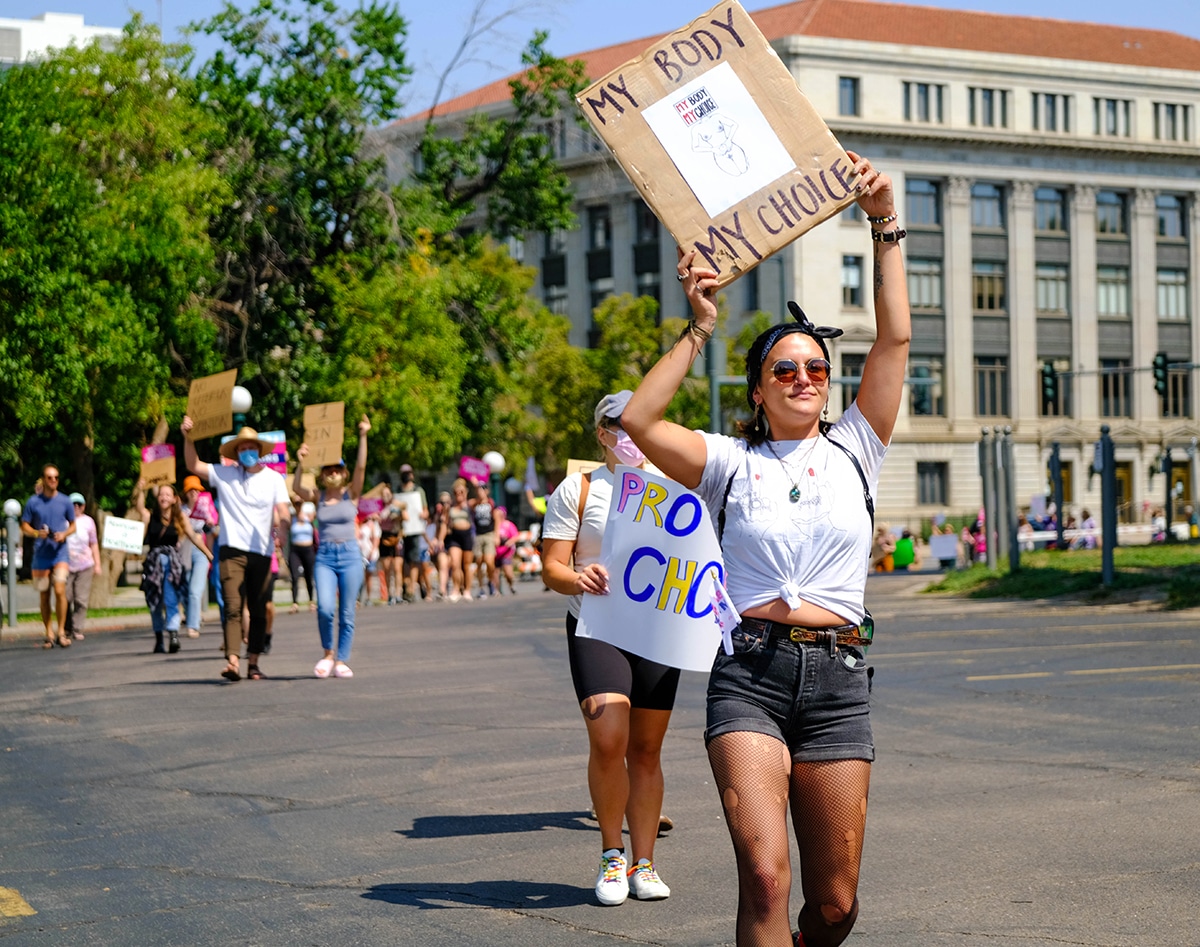
Katherine Riley is a policy director at Colorado Organization for Latina Opportunity Reproductive Rights, an organization working to increase reproductive resources in Colorado and expand access everywhere.
“This isn’t just a Texas problem. Abortion access is a United States problem,” Riley said. “It’s going to take all of us to fix things. That’s why we’re already working with and listening to Texas organizations to better provide them with what they need.”
Pro-choice defenders are already fast at work mounting a legal counterattack in Texas. The ACLU of Texas has filed a lawsuit against SB-8. Planned Parenthood was awarded a temporary restraining order by District Judge Maya Guerra Gamble in Austin on Sept. 3, shielding its clinics from Texas Right to Life whistleblower lawsuits. Texas Right to Life is a group that hails itself as a “statewide builder of creating a pro-life Texas,” and launched ProlifeWhistleblower.com in July. The website has since been de-platformed by its host GoDaddy.com.
Abortion funds like Fund Texas Choice are continuing to assist Texas residents with lodging and transportation expenses to clinics in and out of state. Lyft and Uber have pledged to pay legal fees for drivers who are accused of driving Texans seeking out abortions. While Match Group says its CEO Shar Dubey, not the company itself, is creating a fund, it will nonetheless provide aid to any Match employees in Texas who are forced by the new restriction to seek care outside the state.
So how can Coloradans uplift these efforts in Texas? Leah Payne, a former Texas resident who shared her abortion story at Saturday’s event suggests first getting comfortable with the word itself.
“Abortion is not a dirty word,” Payne said. “Abortion is healthcare. Abortion is intersectional. We can’t have a productive conversation about this if people can’t even say the word.”
Saturday’s speakers presented attendees with various ways to support those in the Lone Star State, from donating to local abortion funds and phone banking and volunteering to having uncomfortable conversations with friends and family.
Sandy Nguyễn, a Denver protester, credits social media as a resource where she’s educated herself on how to help.
“I’m part of the Auntie Network on Reddit,” Nguyễn said. “It’s a community board that is dedicated to providing information and resources to those in need of abortion services. From medical supplies to a safe place to stay, this board is filled with caring people who are ready to open their hearts and homes.”
While abortion access remains legal in Colorado, organizers for the cause feel that recent events in Texas emphasize that elections have consequences. Alyssa Nialmo of Parker, Colorado, was in attendance and shared that her focus right now is on the 2022 midterm elections.
“I’ve already started working on the campaign for Neal Walia, who is challenging the seat of Rep. Diana DeGette,” Nialmo said. “I’m tired of elected officials who preach that they care but don’t show it. Where is Rep. DeGette today? Because she’s not here.”
Walia was present, making him one of a handful of men in the crowd. Nialmo shared that all abortions involve a male, making this a male issue too. When asked why she doesn’t put her support behind a woman candidate, Nialmo expressed that gender doesn’t mean everything.
“Having a uterus doesn’t make you an ally,” Nialmo said. “Enough with elected officials who are just out here checking boxes. We need to support and vote for candidates who support us before we end up like Texas.”
Enjoyed this story? Help us keep the lights on! Supporting local press ensures the stories you want to read keep coming, become a member for free today! Click here.

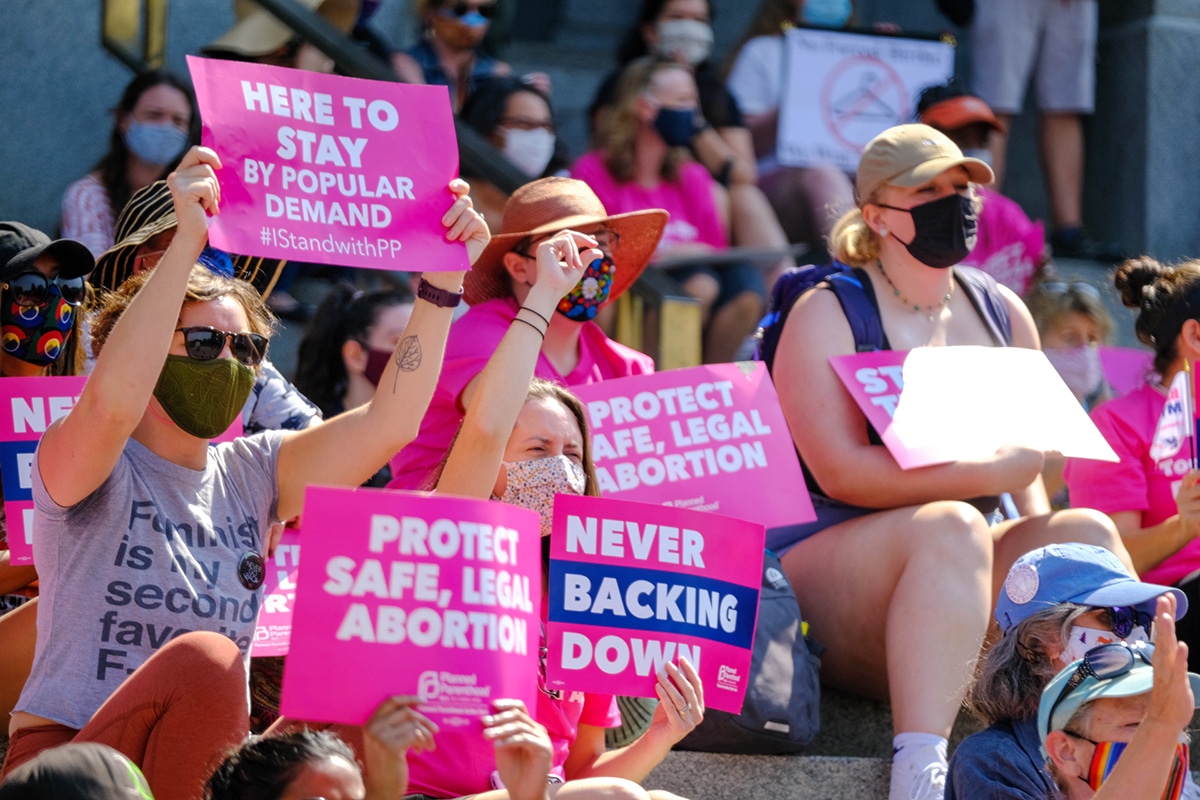
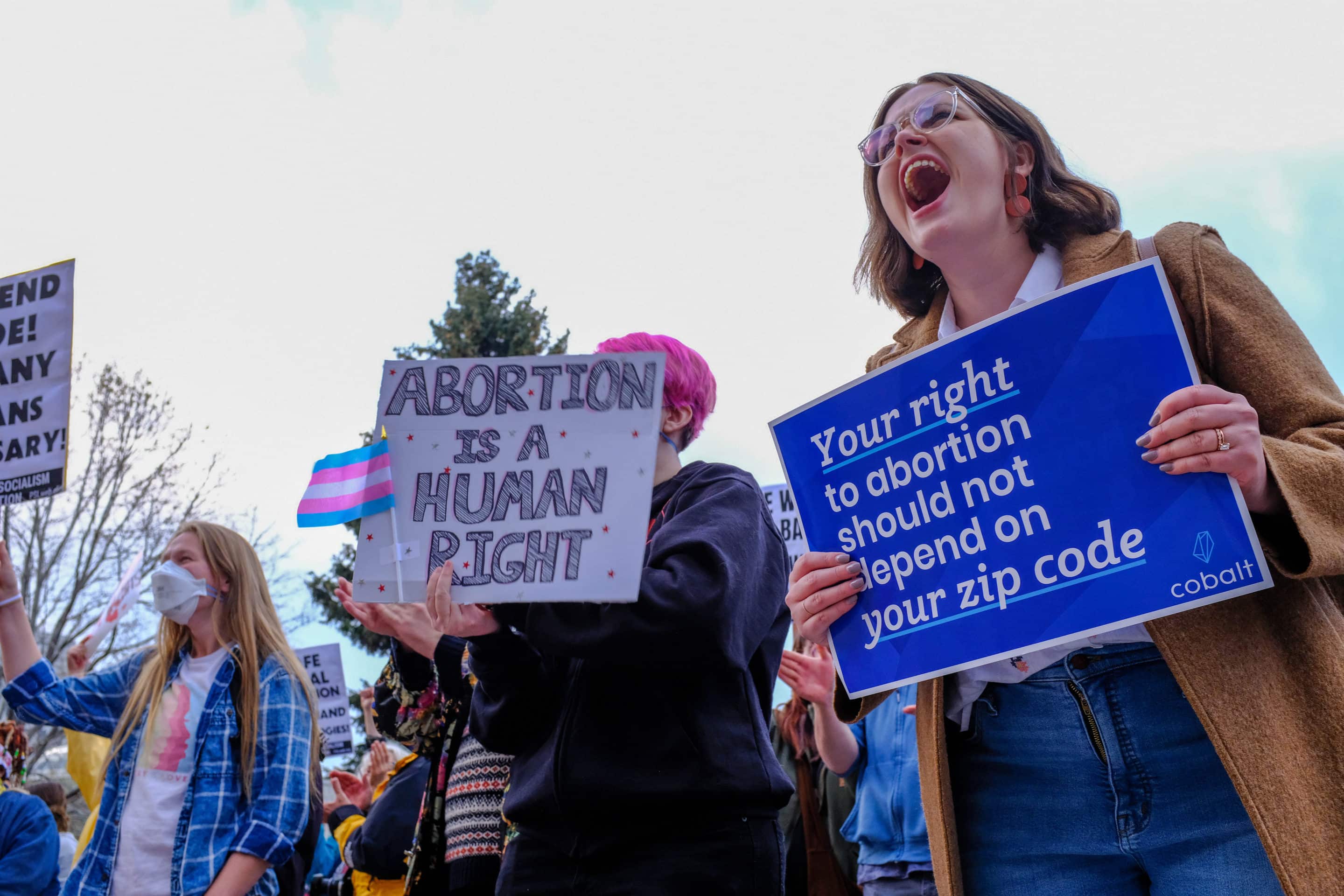
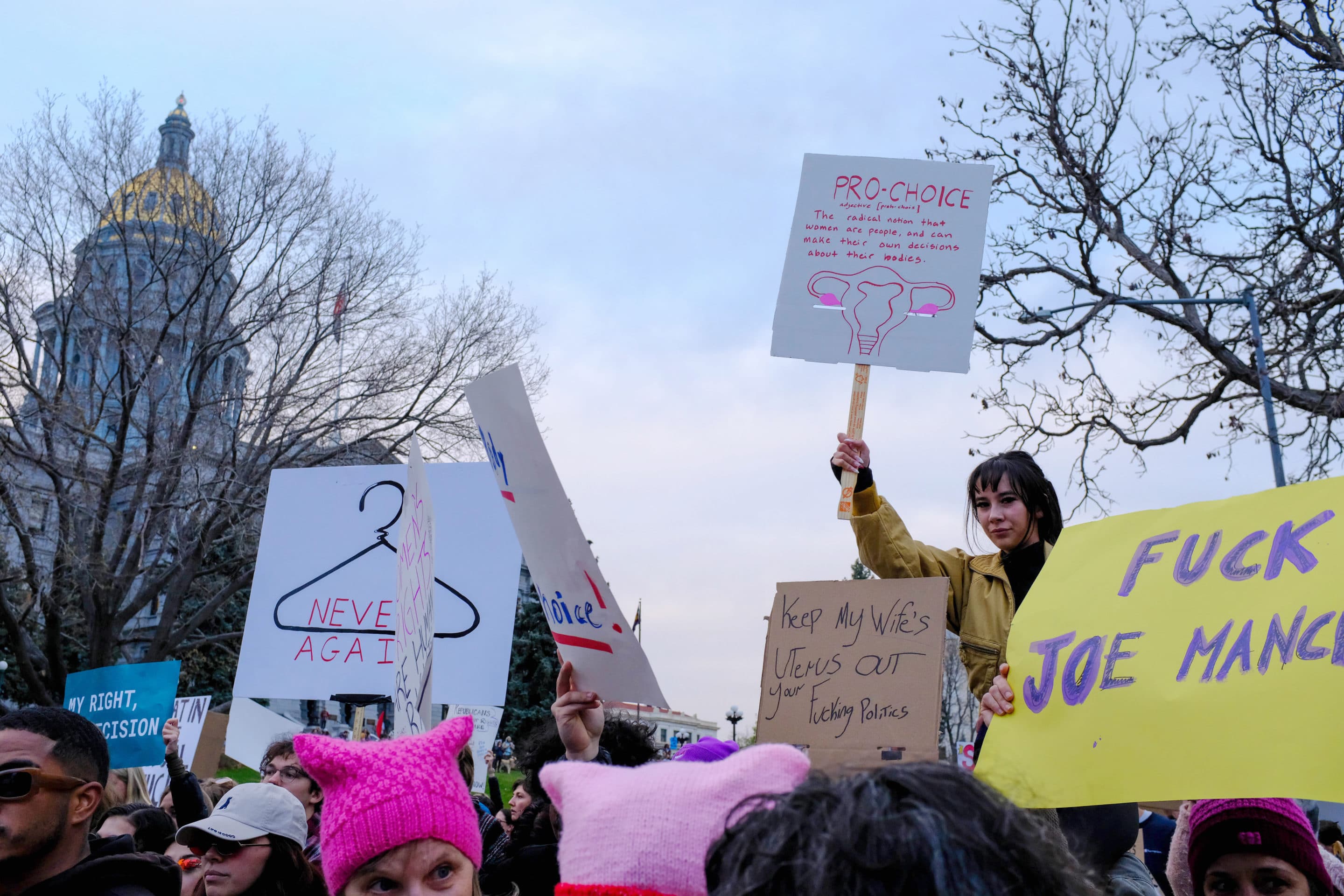
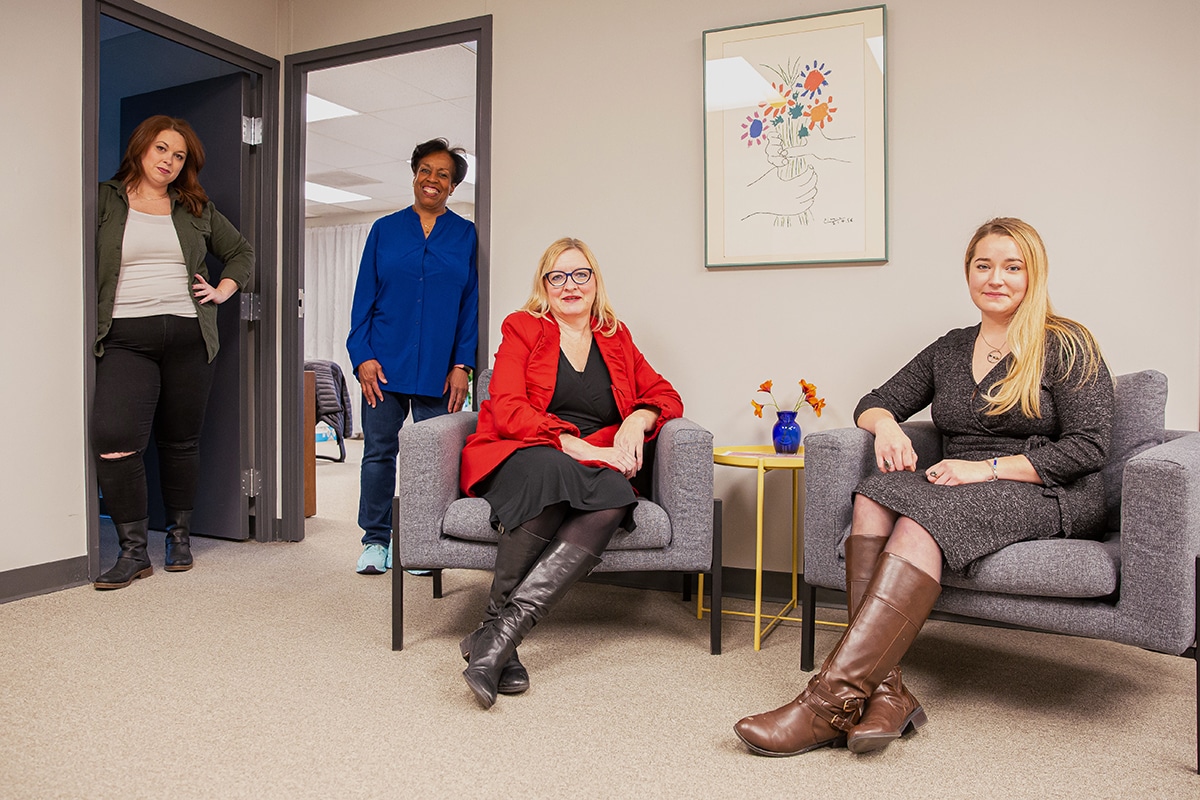
0 Comments